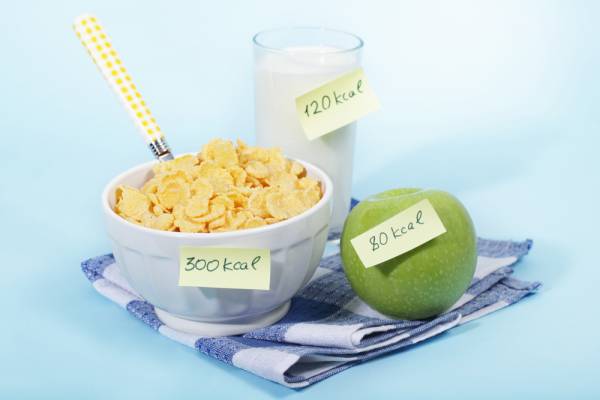Enough with the arguments on the internet, I’m interested in what you think. I’m going to present some controversial topics, then I want to hear what you have to say and what your experience was.
It’s often an uphill battle not worth arguing over – especially on the Internet. And what I’m referring to here are the many controversies and opposing philosophies that exist in the bodybuilding, fitness and nutrition industry. Who is right? What actually works? Is there peer-reviewed research to support it? Many legitimate questions arise.
- Lift fast or slow?
- High in carbohydrates or low carb?
- High intensity or low intensity?
- Strong resistance or light resistance?
- High volume or low volume?
- Is a calorie a calorie or does it depend on how it is metabolized?
- To stretch or not to stretch?
- Should I believe this or believe that?
- Some research says to go right and others say go left. Which direction should I take?
I’m interested in what you think. I understand that many of you are not experts in specific areas and will simply give an opinion. That’s okay, because if something worked for you, I’d love for you to let us know. After all, it’s the results that count. If something has been beneficial, reverse it.
I will present some of the debatable issues. This can get emotional for some soldiers. I’ll offer the premise behind each position, but it’s up to you to give your opinion. Please answer any questions as you feel. This should be interesting because of the many claims you have. Here we go.
Topic #1: Lifting fast or slow?
The principle is that lifting resistance quickly recruits and trains your fast-twitch muscle fibers and thus improves your ability to be more explosive. How much resistance, how fast should it be moved, and how to measure it? Let us know your thoughts in the comments below.
Topic #2: High Carb or Low Carb?
Big debate on this subject. How many grams of carbs do you need? Carbohydrates are the body’s preferred fuel for muscle contraction. low carb diet result, especially for an athlete? Share your thoughts.
Topic #3: High intensity or low intensity?
How does this apply to strength and endurance goals? A pervasive philosophy is the belief that low intensity is linked to a lower percentage of a one repetition maximum (1RM) in strength training, for example 60%. Therefore, a lower intensity is better suited to endurance compared to a high intensity, such as 90%, which is more suitable for strength.
Should intensity be measured by the level of effort expended or by the amount of resistance used? What is the magic number of repetitions to perform for certain types of development? What is the difference between 60%, 83%, 87% or 95% of 1RM? Additionally, what number of repetitions best facilitates these specific types of development (strength, power, endurance) – 5, 10, 12 or 20? What do you think?
Subject No. 4: Strong resistance or light resistance?
 The nauseating belief is that to get bigger, stronger muscles, athletes should use stronger resistance. To achieve “toned” muscles and endurance, athletes should opt for lighter resistance. Make your muscles develop better with heavier resistors rather than lighter resistors? What type of evolution do we obtain with different levels of resistance? I’m biting my tongue on that one. Anyway, what’s your opinion?
The nauseating belief is that to get bigger, stronger muscles, athletes should use stronger resistance. To achieve “toned” muscles and endurance, athletes should opt for lighter resistance. Make your muscles develop better with heavier resistors rather than lighter resistors? What type of evolution do we obtain with different levels of resistance? I’m biting my tongue on that one. Anyway, what’s your opinion?
Topic #5: High volume or low volume?
It depends on the mode of exercise. Are we talking about running and fitness? Is it bodybuilding? Improved sports skills? Running or conditioning volume depends on your event. Longer duration events require a higher training volume, relatively speaking. Strength training requires maximum effort. High effort and high volume are mutually exclusive terms. Practicing skills requires numerous repetitions of exact reproduction of skills or competition situations. Explain your volume philosophy in the comments below.
Topic #6: Is a calorie a calorie or does it depend on how it is metabolized?
 Calories in versus calories out has been the popular thinking when it comes to weight gain, weight loss, and weight maintenance. More calories in than out equals weight gain. Fewer calories in than out equals weight loss. Simple stuff. However, research now suggests that how your body handles the complete digestion and assimilation of types of carbohydrates, proteins and fats is what dictates what actually happens. So is it calories in versus calories out or does it depend on how the micronutrients are metabolized?
Calories in versus calories out has been the popular thinking when it comes to weight gain, weight loss, and weight maintenance. More calories in than out equals weight gain. Fewer calories in than out equals weight loss. Simple stuff. However, research now suggests that how your body handles the complete digestion and assimilation of types of carbohydrates, proteins and fats is what dictates what actually happens. So is it calories in versus calories out or does it depend on how the micronutrients are metabolized?
Topic #7: To stretch or not to stretch?
Years ago, this was standard procedure for static stretching before a sports competition or sports training session. We did it and moved on. However, the current mentality is that this approach is taboo. Static stretching before a critical event is thought to impair performance. Your thoughts, please. What do you do before and after your workouts?
Controversy and open discussion are a good thing because they force you to think about the many factors that ultimately need to be considered to achieve your desired results. Thinking and analyzing makes you smarter, gives you control over your training plan, and leads to more effective training. This is a step towards resolution and will hopefully put you on a direct path. If plan A doesn’t work, it’s time to move on to plan B.
What worked for you is important. I want to hear what you think. Not only the questions mentioned above, but also other beneficial training topics that you are passionate about. Participate and post in the comments!
Photos courtesy of Shutterstock.
